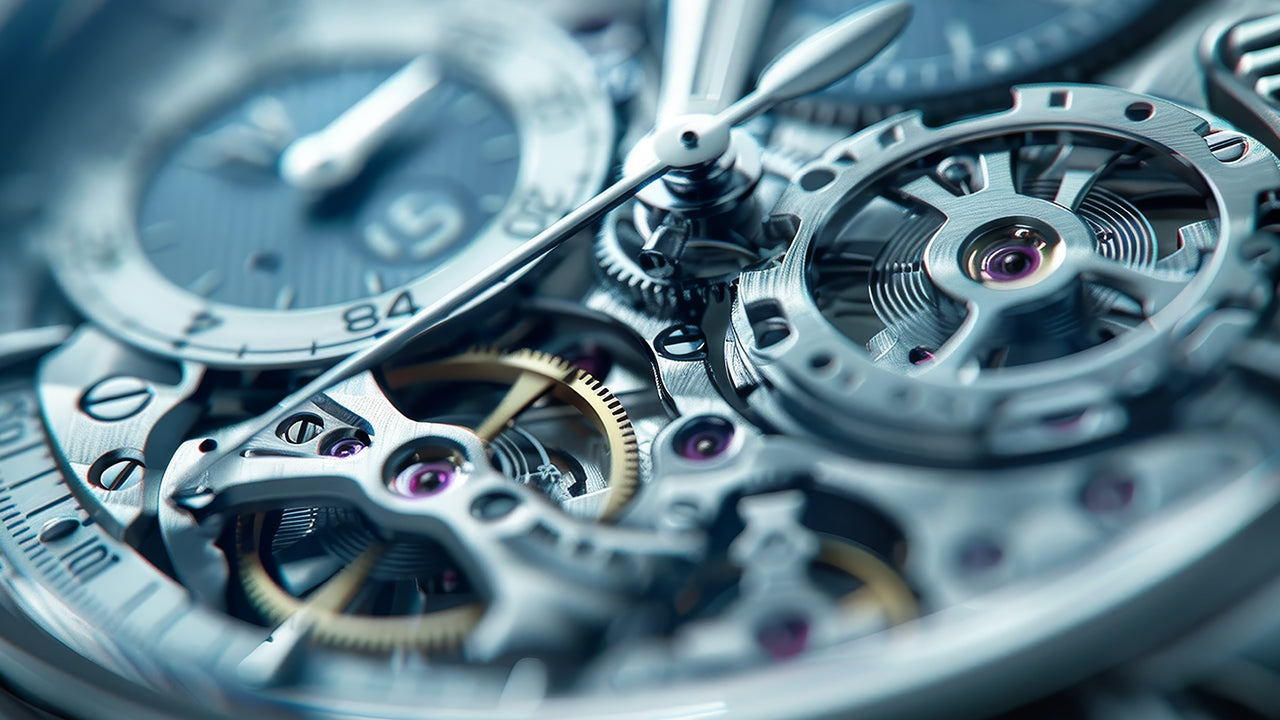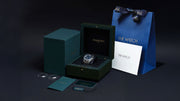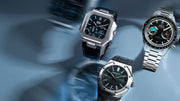The difference between automatic and quartz movement

Luxury watches are more than just timepieces, they reflect your style. It’s essential to understand the watch mechanism if you’re thinking of buying a new one. One of the most important factors to consider is the watch movement, which is the mechanism that powers it. The most common two types of watch movements are automatic and quartz. Each movement has its characteristics and advantages, catering to different lifestyles. In this blog, we will explore the differences between automatic and quartz movements, their pros and cons, and which one might be the right fit for you.
What is a watch movement?
A watch movement is the internal mechanism that powers the watch. It’s known as a caliber that keeps the time and does other functions like showing the date, it’s like the engine that drives the watch. There are 3 main types of watch movements: quartz, automatic, and manual. We will focus on automatic and quartz movements as they are the most used types in most timepieces.
Quartz movement
Quartz watches run on a small battery that sends electricity to a tiny quartz crystal. This electric current makes the crystal vibrate at an extremely precise frequency of 32,768 times per second. It converts these vibrations into electrical pulses that power a small motor, and this motor moves the hands of the watch. This technology was introduced in 1969 by Seiko, and since then, it was the beginning of the quartz revolution. Quartz watches are very accurate, they are considered to be more precise than mechanical watches. Quartz watches require low maintenance and servicing, they are more affordable than automatic ones as their production costs are lower. They’often lightweight and comfortable for daily wear. They are highly resistant to shocks, so they’re ideal for active lifestyles. Despite the practicality of quartz watches, they lack the craftsmanship that many collectors look for in mechanical watches. Quartz watches are mass-produced and have a short life span, so in collectors’ minds, they hold less emotional value.
Automatic movement
Automatic watches are known as self-winding watches. They work using the mechanical movement of the wearer’s wrist. There is a semi-circular weight inside the watch known as a rotor. This rotor moves when the wearer’s wrist moves, generating energy. The energy generated from the rotor is released gradually to power the watch and regulate time. Automatic watches don’t run by using batteries, they run as long as they’re worn. However, if the watch is left unworn for a long period, it might stop and need manual movement to start. One of the main reasons why collectors prefer automatic watches is due to their mechanical craftsmanship. Automatic watches are like a horological innovation that is handcrafted with refined engineering techniques. The Watches’ hands have a smooth sweeping motion which makes them more visually appealing compared to the ticking movement of quartz models. Another advantage is automatic watches don’t depend on batteries to work, and with proper care, they can last a lifetime. Most high-end brands create limited-production automatic watches, which adds to their exclusivity and long-term value in the collector’s market. Despite their appeal, automatic watches need more care and maintenance than quartz watches. They need periodic servicing every 3-5 years, which can be expensive.
Differences between automatic and quartz watches
Automatic and quartz watches are powered differently. Quartz watches are powered by batteries and quartz crystals, while automatic watches use a self-winding mechanical movement. Quartz watches are more accurate and low-maintenance, they’re a more practical choice for providing affordability and durability. On the other hand, automatic watches require staying on the wearer’s hand to be powered, which makes them more requested in the world of luxury watches. Collectors and enthusiasts are motivated by the fine watchmaking and heritage of automatic watches, even when they require more care and maintenance. Many automatic watches increase in value over time, especially those from brands like Rolex, Patek Philippe, and Audemars Piguet.
Which one is right for you?
You’ll choose an automatic watch if you’re someone who appreciates craftsmanship and art behind watchmaking, and if you’re looking for a watch that holds long-term value. Yet, if you’re choosing a Quartz watch, you’re someone who prioritizes accuracy and reliability with minimal maintenance. You prefer a lightweight option that is practical and affordable. Your decision should align with your personal style and needs. Whether you like the technical brilliance of a quartz movement or the highly detailed mechanism of an automatic one, you can find the ideal timepiece for you on The Watch Scanner website. Explore our curated collection now.






